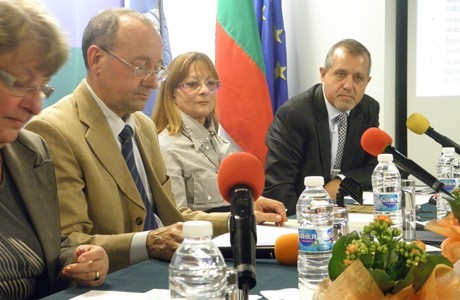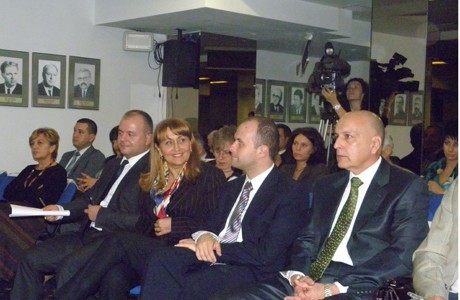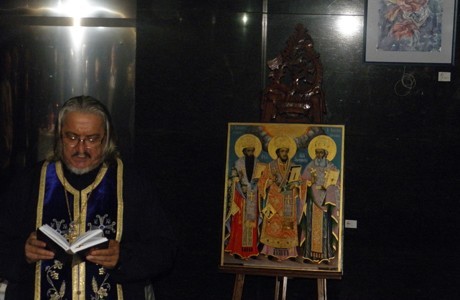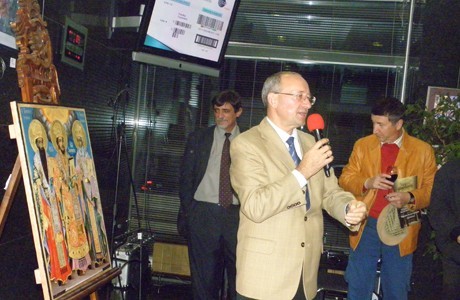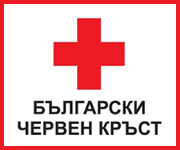Назад
Назад
200th anniversary of the establishment of the first Association of Tradesmen in Bulgaria
BCCI took the initiative and together with other interested organizations and companies from the retail sector organized the celebration of the 200th anniversary of the establishment of the oldest known Sofia Branch Association of Tradesmen and Grocers “Three Saints”, which gave a start to the association of the tradesmen’s guild in Bulgaria.
On the occasion of the celebration a special jubilee book was prepared in order to remind the important role of the Association and its members in society and to link it to the modern tendencies in trade. A replica of the icon “Three Saints: St. Basil the Great, Gregory the Theologian and John Chrysostom” was consecrated by the First Hierarch of “St. Nedelya” Cathedral Mina Ivanov Minchev.
Congratulatory addresses were sent by the Minister of Labour and Social Policy Mr. Totyo Mladenov and the Minister of Culture Mr. Vezhdi Rashidov.
The President of BCCI Tsvetan Simeonov welcomed the guests and briefly presented the jubilee edition.
The Deputy Minister of Economy, Energy and Tourism Ms. Evgenia Haritonova spoke about the influence which the grocers’ guild had on the public and economic life of our country in the period before the Liberation. She added: “Two centuries later we are creating an environment suitable for investments with less bureaucracy, simplified and transparent procedures for businesses, and efficient governance supporting entrepreneurs. I was very surprised to find out that such an association survived through the years. My compliments to them and to you, who are bound to continue their mission.”
The Deputy Mayor of Sofia responsible for the “Financial and Business Activity” Mr. Doncho Barbalov delivered an address on behalf of the Mayor of Sofia Ms. Yordanka Fandakova: “I would like to congratulate the Bulgarian Chamber of Commerce and Industry as successor of this 200-year-old tradition with its responsible work for development of the tripartite dialogue in the country, support of the activity of the sectorial organizations and active participation in the continuing development of modern trade in Bulgaria.”
Among the official guests were Kamelia Lozanova – Executive Director of the Employment Agency, Yuliyan Mitev – Executive Director of the Registry Agency, Borislav Stefanov – Executive Director of Invest Bulgaria Agency, Emilian Abadzhiev – Manager of Metro Cash & Carry and Chairman of the Association for Modern Trade. Assoc. Prof. Lilyana Veleva, Head of Section “Business History” at “Political Economy” Department, University of National and World Economy also presented the jubilee edition.
Tsveta Bratanova, Chief Expert at GS1 Bulgaria made two presentations on themes: “Store chains – an engine of modern trade” and “GS1 Standards in the products tracking systems”. Vasil Todorov, Secretary General of BCCI presented “The revolution of networks and Ecomgrid”.
The aim of the celebration was to show that ever since ancient times tradesmen have had an important role in society and thus have been respected and enjoyed much authority. They played an important role in the process of economic development of our country before and after the Liberation. In the national fights for freedom the tradesmen’s guild played a number of social functions in favour of society, provided funding for the construction of schools, including handicraft schools, supported the activity of libraries, community centers and the church, helped orphanages, etc.
In Bulgaria, chambers of commerce and industry were officially established in 1895 – 117 years ago, but they were based on the old public associations of tradesmen and grocers. To this day, Sofia Branch Association of Tradesmen and Grocers “Three Saints” has remained the oldest association known in Bulgaria whose activity continued until World War II. Most of the Association’s numerous members took care of the ordinary people during its entire period of existence, and often offered them goods on credit, funded noble causes such as establishment of schools, libraries and community centers. They did this not because this was required of them but simply out of humanity and kindness. The groceries were practically the predecessors of modern department stores and local shops, offering a wide variety of home and imported products.
06.11.2012
Още новини:
-
02-11-2012

 1 USD =
1 USD =  1 GBP =
1 GBP =  1 CHF =
1 CHF =  ISO 9001:2015
ISO 9001:2015